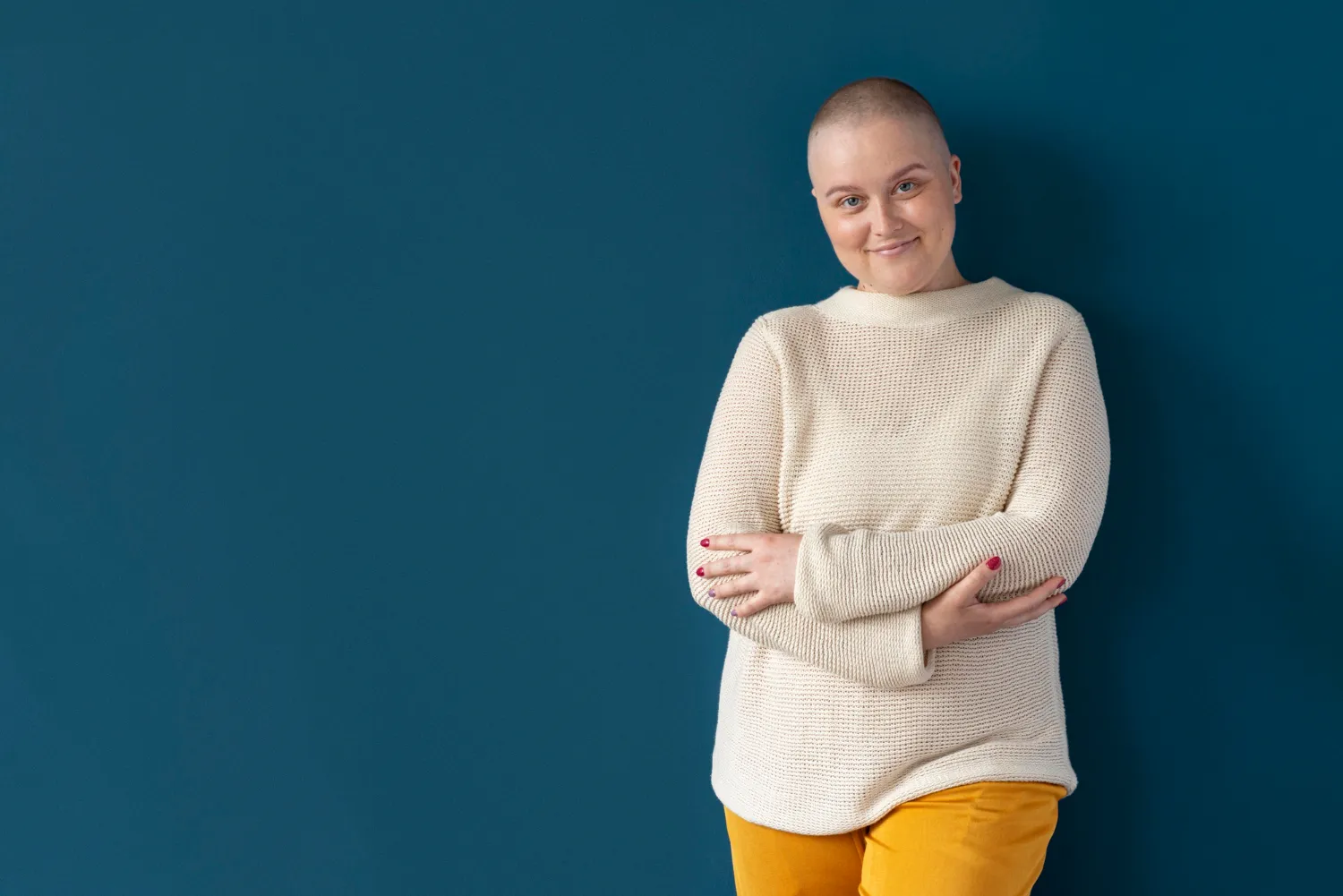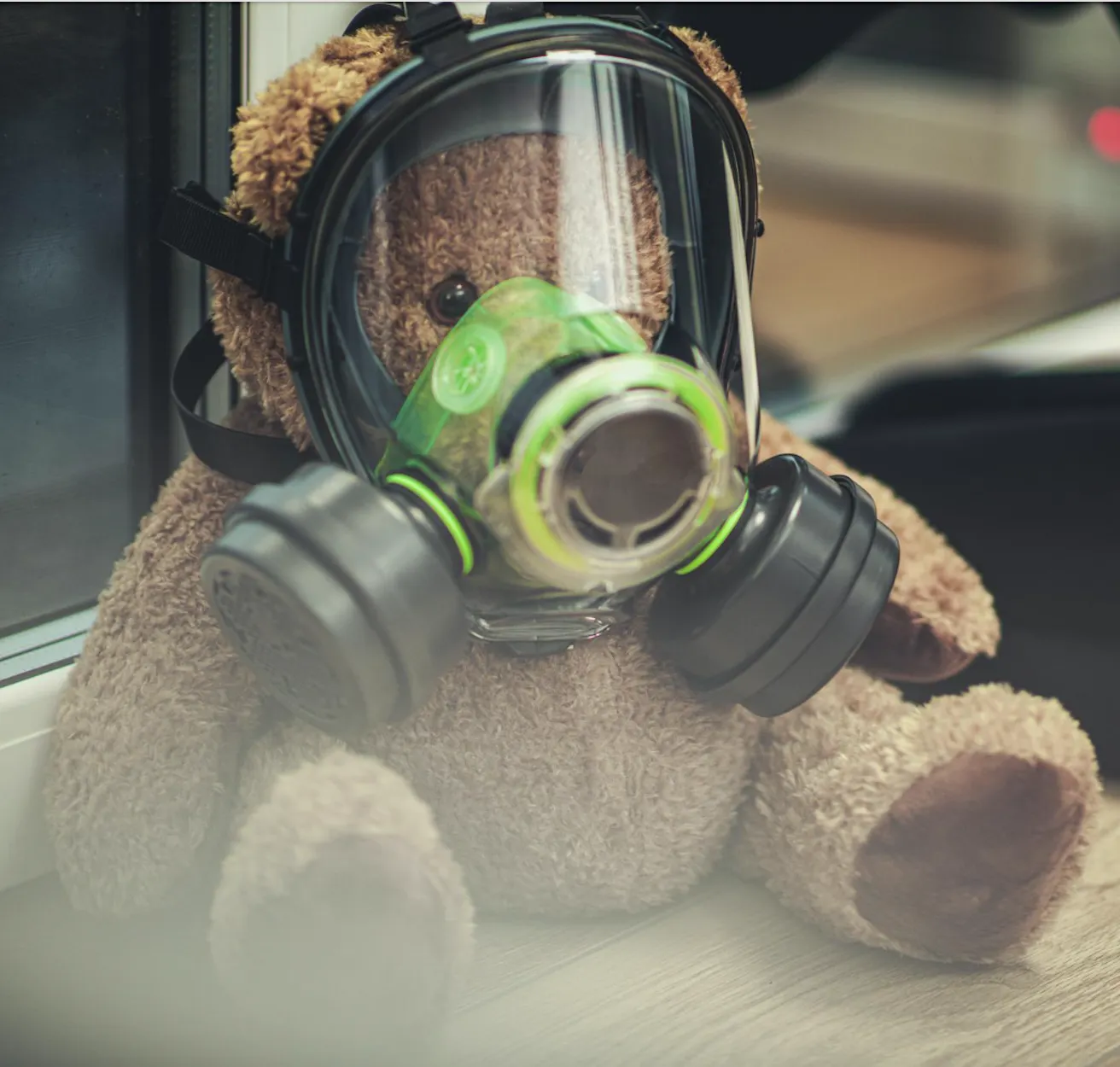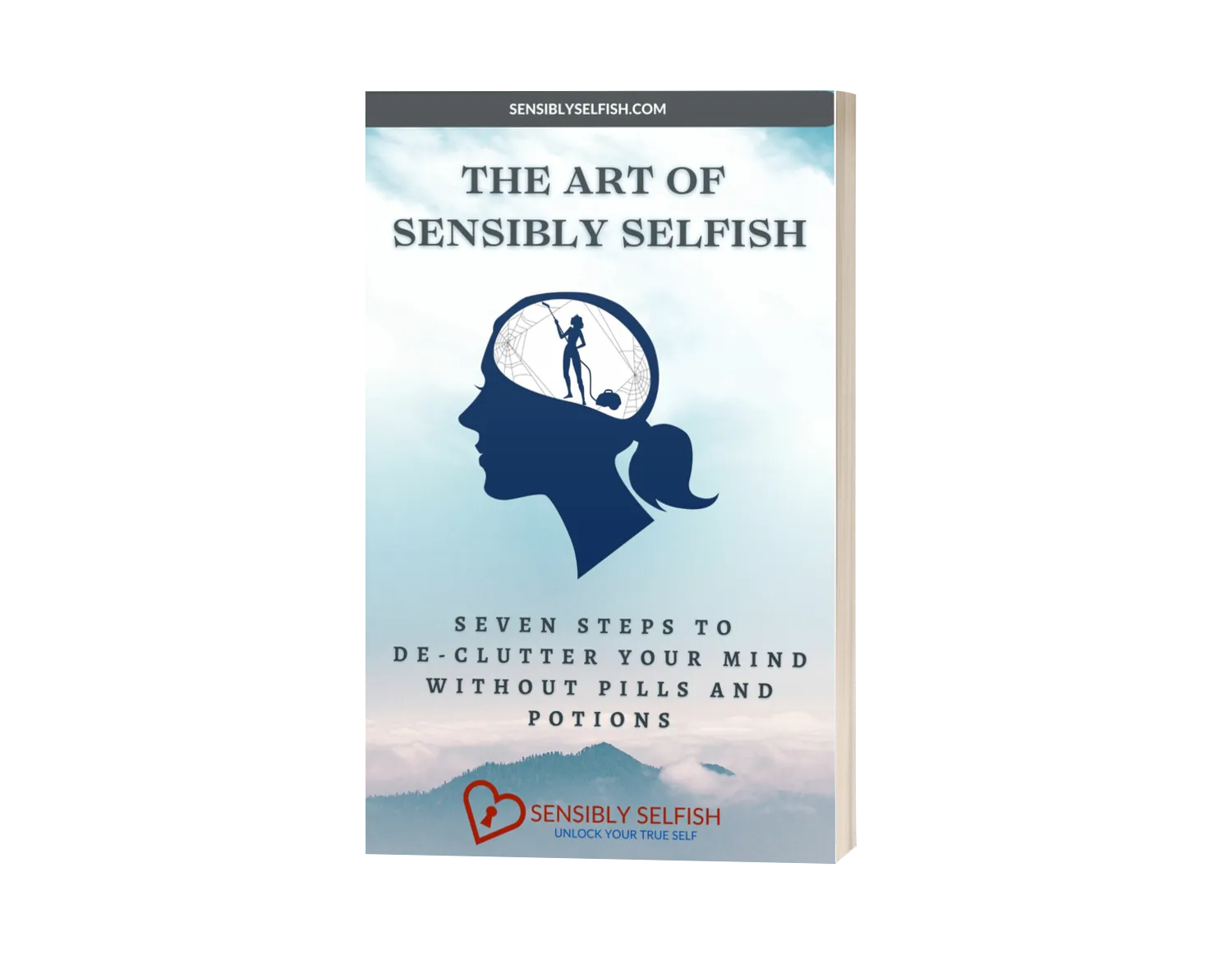When Your Best Friend is Diagnosed with Cancer
What to Say and Do

[Toc]
In life, we often find ourselves sailing through calm waters, but occasionally, we encounter storms that shake us to the core. Learning that your best friend has been diagnosed with cancer is one such tempest. The emotional impact is profound and the weight of such news can be especially daunting.
Studies have found that cancer survivors with strong emotional support tend to adjust better to the changes cancer brings, have a more positive outlook, and often report a better quality of life. Research has shown that people with cancer need support from friends. You can make a big difference in the life of someone with cancer yet you also need to be aware of how to be supportive and look after yourself.
In this guide, we'll explore how to navigate these uncharted waters, offering support, empathy, and practical advice for those supporting cancer patients.
The Initial Shock
A loved one's cancer diagnosis is like a thunderbolt, leaving us momentarily paralyzed. As a woman who has faced this situation, I vividly recall the overwhelming flood of emotions – fear, sadness, and a profound sense of helplessness. It's crucial to give yourself permission to feel these emotions. They are valid, and they pave the way for a more genuine and compassionate response to your friend's situation.
Take time to process other emotions that may come your way; guilt, anger, and your own feelings toward illness and death. It is important to acknowledge your emotions and decide which ones you wish to hold onto, explore more, or let go of. Journaling is a fabulous way to do this. Ask yourself what type of friend do I want to be during your friend's cancer journey.

Choosing Empathy Over Sympathy
In stressful times like these, empathy becomes our guiding light. It's more than expressing sympathy; it's about genuinely understanding and sharing your friend's feelings. When my dearest friend received her diagnosis, I found solace in just being there, offering a listening ear without judgment. I refuse to be a friend who has all the answers or breaks down into tears at every moment. Empathy allows us to connect on a deeper level, fostering a sense of solidarity that is irreplaceable.
It's about showing vulnerability, and admitting that we don't have all the solutions, and that's perfectly okay. In those silent moments of understanding, where words might fall short, our presence becomes the strongest support. It's the acknowledgment that sometimes all we can do is stand together in the uncertainty, offering the comfort of shared humanity.
Practical Ways to Offer Support
Practical support becomes a lifeline for your friend. Simple acts, such as preparing meals, helping with chores, or providing transportation to medical appointments, alleviate some of the burdens. Consider the following comprehensive list of practical ways to be there for your friend:
Keep in touch regularly: Regular communication, whether through texts, calls, or emails, provides a continuous thread of support. A simple "How are you doing?" can mean a lot.
Make short regular visits: Regular, brief visits show your consistent presence. These moments don't need to be elaborate; sometimes, just sitting together or sharing a cup of tea can provide comfort.

Touch them: Physical touch, such as a gentle hug or holding their hand, can convey a depth of support that words sometimes cannot express.
Visit when others can't: While the initial wave of support might be strong, it tends to wane over time. Weekends may be busy and Monday is the loneliest day in the week. Be the friend who continues to visit even when others may not be able to. Your steadfast presence will be appreciated.
Get them out: Encourage outings, even if they are brief. A change of scenery, a short walk, or a visit to a favorite place can provide a welcome distraction from the challenges they are facing.
Do tasks: Assist with daily tasks that might become overwhelming. Whether it's grocery shopping, walking the dog, or handling household chores, these practical actions make a tangible difference in their daily lives.
By incorporating these practical gestures into your support, you not only ease the tangible burdens but also create a network of care that extends beyond the diagnosis. The strength of your friendship lies not just in words but in the consistent, thoughtful actions that reflect your commitment to being there for your friend throughout their journey.

The Art of Choosing the Right Words
Finding the right words is a delicate dance. Often, we stumble in our attempts to comfort. Instead of relying on generic phrases, authenticity in words creates a space where you and your friend can share openly. Consider the following expressions that convey empathy and support:
"I'm here for you." A simple yet powerful affirmation of your presence and commitment.
"I don't have the answers, but I'm with you on this journey.” Acknowledging vulnerability and expressing solidarity in navigating the unknown.
"Your strength inspires me." Recognizing and celebrating the resilience they demonstrate in the face of adversity.
"Take all the time you need; I'm here to support you.” Offering reassurance and understanding the importance of individual coping timelines.
"I'm sending you positive thoughts and energy." Conveying a sense of positivity and warmth without imposing expectations.
"You're not alone; we'll face this together." Emphasizing a collaborative approach to the challenges ahead.
"Tell me how you're feeling when you're ready; I'm here to listen." Creating a safe space for open communication and sharing without pressure.
"I believe in your ability to overcome this." Instilling confidence and reinforcing their capacity to navigate the journey.
"Let's focus on the present moment; we can tackle the future together, tomorrow." Encouraging a step-by-step approach and avoiding overwhelming thoughts of the unknown.
"Your well-being is a priority; how can I best support you today?" Putting the focus on their needs and providing tangible assistance.
"It's okay not to be okay. I'm here to support you through the highs and lows." Normalizing the range of emotions and expressing a commitment to being a steady presence.
"What do you need right now? I want to be here for you in the way that helps the most." Offering practical assistance and demonstrating a willingness to meet their specific needs.
"Your feelings are valid, and I'm here to validate them without judgment." Creating a space where their emotions are acknowledged and accepted.
"I value our friendship, and I'm committed to supporting you in any way you need." Reinforcing the strength of your bond and expressing a long-term commitment to their well-being.
"Every step forward is a victory, no matter how small. Let’s celebrate your progress." Encouraging a positive perspective and acknowledging the significance of even the smallest achievements.
Remember, the key is to offer genuine, heartfelt sentiments that reflect your care and understanding. These words can serve as a foundation, and you can adapt them based on the specific dynamics of your friendship and the individual preferences of your and your friend.

What Not to Do
As a friend, it's crucial to be mindful of what not to do, ensuring our support remains a source of comfort rather than adding to the challenges. Delicate situations require wisdom and empathy:
Offer advice they don't ask for or be judgmental: Resist the urge to impart unsolicited advice. Judgment has no place in the supportive space you're creating. Instead, offer an open heart and a listening ear without the weight of opinions.
Feel you must put up with temper or mood swings: While understanding the emotional turbulence that comes with illness, it's important to establish boundaries. Disruptive or abusive behavior is not acceptable, from anyone, even in the face of illness. Maintaining a healthy environment is essential.
Take things too personally: Recognize that a person with cancer may experience shifts in mood and a need for solitude. It's not a reflection of your relationship but a natural response to the challenges they are facing. Allow space for these moments without internalizing them.
Be afraid to talk about the illness: Approach conversations about the illness with sensitivity and openness. Fear should not hinder dialogue. By acknowledging the reality, you create a space for authentic communication.
Always feel you have to talk about cancer: While acknowledging the illness is important, it doesn't have to dominate every conversation. Find a balance between offering support and engaging in a variety of discussions that reflect the richness of your friendship.
Be blameful: Avoid delving into past behaviors or speculating on the causes of the illness. Steering clear of a judgmental tone helps create an environment focused on the present and future, rather than assigning blame to the past.
Don’t Make Assumptions: Tell the person with cancer, “I can imagine how you must feel,” because you really can’t. Authenticity is key. Instead of making assumptions about their experience, express your willingness to listen and learn from their unique journey. Everyone's emotional landscape is different.
Be there if you are sick: Prioritize their well-being by being mindful of your own health. If you're unwell or showing signs of infection, taking a temporary step back ensures a safe and healthy environment for both of you.
By appreciating these new life nuances, you reinforce the foundation of your friendship, providing the support needed without inadvertently adding stress to an already challenging situation.

Laughter as Medicine
In the darkest moments of facing a cancer diagnosis, the healing power of laughter becomes a beacon of light. Amidst the challenges, sharing a humorous memory or finding joy in small, everyday moments emerges as a potent medicine. Laughter, often underestimated, has the remarkable ability to uplift spirits and provide a respite from the weight of adversity.
Imagine the shared chuckles over a fond recollection or the infectious joy sparked by a light-hearted moment—these instances transcend the confines of illness. Laughter becomes a source of strength, a collective reminder that, even in the face of profound challenges, joy has an enduring place.
It's not about dismissing the seriousness of the situation but about embracing the therapeutic quality of laughter. A genuine laugh has the power to momentarily transcend hardships, offering a reprieve from the intensity of emotions. In those shared moments of mirth, there's a communal understanding that, while the journey may be arduous, the capacity to find joy remains resilient. Laughter becomes a testament to the indomitable human spirit, reminding us that, even amidst the shadows, light can be found in the simple, beautiful act of shared laughter.

Sensibly Selfish Self-Care
Cancer is a rollercoaster of emotions, not just for the patient but for those standing by their side. It's crucial to acknowledge your own emotional journey. Self-care isn't selfish; it's a necessity. Seek support from friends, family, or a counselor. By addressing your needs, you fortify yourself to be a more resilient and steadfast companion.
In navigating these challenging waters, remember that being sensibly selfish is not a luxury but a necessity. By caring for yourself, you become a more capable and compassionate friend. As we stand together in solidarity, supporting one another, we find strength in vulnerability, courage in connection, and hope in shared laughter.
Thank you for your commitment to being a pillar of support. Why not share your experiences and tips in the comments below? Together, we create a community where strength and love prevail, even in the face of life's storms.









